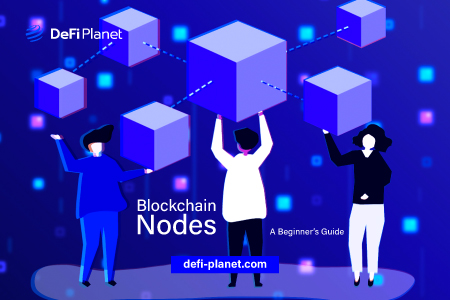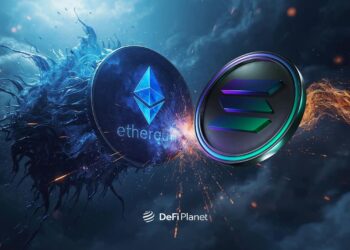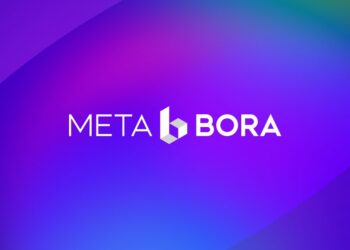Last updated on April 22nd, 2023 at 09:07 pm
- Blockchain nodes are electronic devices that facilitate communication and interaction on a blockchain network.
- They verify the legitimacy of transactions, approve or reject them, and record them on the blockchain ledger.
- Blockchain Nodes are an essential component of blockchain technology, and why it is a distributed ledger.
- Nodes also play a crucial role in maintaining the blockchain network’s security and transparency by checking transactions and updating the blockchain with new blocks in accordance with the consensus mechanism’s rules.
- The full, light, and Miner nodes all work together to ensure the maintenance and functionality of the technology.
Introduction
The popularity of blockchain technology has significantly increased since the introduction of Bitcoin, which was initially viewed as the only use case for the technology. However, as more industries started to develop products using blockchain, it became apparent that blockchain has multiple applications beyond cryptocurrencies. Industries such as fashion, finance, supply chain management, insurance, healthcare, and more are now implementing blockchain solutions to solve various challenges.
The unique concept of blockchain, with its distinctive components, has made it one of the most sought-after technologies today. Blockchain is essentially a ‘distributed immutable ledger. One big question is what makes it ‘distributed’. Answering this question leads us to the concept of blockchain nodes.
Therefore, this article aims to shed light on an essential component of blockchain technology: blockchain nodes and their roles in how blockchain works.
By understanding the role of blockchain nodes, you can better understand blockchain technology and its applications and make informed decisions regarding its use.
What Are Blockchain Nodes?
Blockchain Nodes are generally technological devices connected to a blockchain network and possess a unique IP address. The definition of nodes varies depending on the application and the function they serve within the blockchain network.
Nodes primarily serve as communication endpoints, meaning that any user or program seeking to interact with the blockchain must do so through a node. As a result, nodes act as hubs for disseminating communication within the network. Essentially, a node functions as a platform through which messages can be created, received, and transmitted throughout the network.
For a better perspective of how blockchain nodes work, imagine a safe lock carefully built by a locksmith named James, who has dedicated his life to perfecting his craft. James proudly boasts that this newly built lock is the safest lock on the market and can safeguard the resources of small and large organizations.
When asked about its features, he explains that the lock will have 50,000 keys distributed randomly across all seven continents, from Europe to Africa, Asia, and beyond. He confidently claims that strangers will only be able to access the lock if they manage to acquire more than 51% of the keys distributed worldwide.
Now, that safe is a pretty difficult one to access!
A stranger who wants access to those resources or whatever is in the safe will have to go through the lock, but getting the key in one place is an impossible challenge he has to conquer. That is a practical example of what blockchain nodes are.
The keys are a representation of the nodes, while those given the keys to safeguard the lock are the miners or validators who are given permission to mine new blocks, approve transactions or maintain order on the network, as the case may be.
Why Are Blockchain Nodes Important?

Blockchain’s fundamental principles dictate that every block is cryptographically linked to the block next to it. This cryptographic linking of blocks ensures that the data stored in the blockchain is tamper-proof. The network will detect any alteration in a block because when a block is modified or altered, all next blocks must also be changed. The value or hash of the next blocks depends on the altered block.
The primary function of a blockchain node is to maintain a copy of the blockchain ledger and validate transactions. Thus, blockchain nodes play a critical role in ensuring the security and integrity of blockchain networks. The following are some of these fundamental roles:
Validating Transactions
In a traditional banking system, a centralized authority verifies and approves transactions. The authority is usually a bank or a financial institution. The process involves checking the sender’s account balance, verifying the recipient’s identity, debiting the sender’s account, and crediting the recipient’s account.
However, a decentralized network such as a blockchain has no centralized authority to track and approve transactions. Instead, the nodes on the network are saddled with that responsibility.
Each node on the blockchain network validates transactions based on a consensus mechanism. This means a certain number of nodes must agree on the validity of a transaction before it is approved. Once the nodes verify and approve a transaction, it is added to the blockchain ledger.
Nodes play a critical role in the functioning and security of a blockchain network, as they are responsible for validating transactions, maintaining the integrity of the system, and ensuring that the consensus mechanism is followed to prevent fraud and tampering.
Facilitating System Maintenance
Nodes on the network are responsible for maintaining the blockchain. They store a copy of the entire ledger and update it with new blocks as they are added. This redundancy in the system ensures that the blockchain remains secure even if some nodes go offline or are attacked by malicious actors.
Nodes also play a role in maintaining the integrity of the blockchain by verifying the authenticity of new blocks and ensuring that they follow the network’s consensus rules. This helps to prevent fraud and hacking attempts and ensures that the blockchain remains a trusted and reliable source of information for all participants on the network.
Democratizing Access to Information
In a decentralized system, such as a blockchain network, no central authority controls access to the system. Instead, every node on the network has a copy of the ledger and can validate and process transactions. This means that anyone can access the blockchain and view its contents without needing permission from a central authority.
When users access the Ethereum blockchain using a third-party blockchain explorer like Etherscan, they interact with the blockchain nodes to retrieve data about transactions, blocks, and other information on the network. The nodes on the network maintain a complete and transparent record of all transactions, and anyone can access this information without the need for intermediaries or central authorities.
This transparency is one of the key benefits of blockchain technology, as it allows for greater accountability and trust in the system. All participants on the network can see and verify the data on the blockchain. This helps to prevent fraud, errors, and other malicious activities., because of the prevailing crypto ban in China.
Types Of Blockchain Nodes
Blockchain has various types of nodes. We will discuss three of the major nodes of Blockchain: Full Nodes, Light Nodes, and Miner Nodes.
Full Nodes
A full node keeps an exact duplicate of the Blockchain ledger. These nodes can independently validate the full Blockchain history. This is because they download and store copies of every transaction and block on the network.
A Blockchain network’s full nodes serve as its foundation and are crucial to preserving its integrity.
Light Nodes
Light nodes are a more compact variation of full nodes. They are sometimes referred to as SPV (Simplified Payment Verification) nodes. They are designed to work on devices that have little storage and processing power. Mobile devices like smartphones and tablets are examples of these devices.
Light nodes only download the segment of the Blockchain that pertains to their transactions, not the full Blockchain. They depend on full nodes to collect the data they require to confirm their transactions.
Miners Node
Miner nodes carry out the task of verifying transactions and adding new blocks to the Blockchain. These nodes carry out intricate calculations to resolve mathematical issues that let them produce new blocks and earn rewards in the form of digital currency. The calculations necessary for mining are carried out by miner nodes using specialized gear and software. Usually, they are run by large mining pools or wealthy individuals who can afford to buy the necessary machinery.
How Do Blockchain Nodes Work?
The activities of nodes on a blockchain network are not random. A concrete and laid-down principle determines what and how the nodes act. This principle is called a Consensus mechanism. (Consensus is the process of verifying transactions and adding them to the blockchain.)
Different blockchains use different consensus mechanisms. Some commonly used consensus mechanisms include Proof-of-Work (PoW), Proof-of-Stake (PoS), or Delegated Proof-of-Stake (DPoS).
When a user initiates a transaction on a blockchain network, a node receives it and broadcasts it to the rest of the network. The nodes will verify that the sender has the necessary funds and authorization for the transaction. All nodes in the network must examine the transaction to ensure its legitimacy and solidify the network’s security.
Only after 51% of the nodes confirm the transaction can it be accepted. It is believed that it is highly unlikely that a malicious party could gain control of 51% of a blockchain network with hundreds or thousands of nodes.
Nodes use a consensus mechanism to add a new block to the blockchain. For example, the PoW consensus mechanism requires nodes to compete to solve a complex mathematical problem. The first node to solve it adds the new block to the blockchain. Once a new block is added to the blockchain, all nodes in the network update their copy of the blockchain to include the new block.
In some blockchain networks, a small number of full nodes are responsible for maintaining the consensus mechanism. These nodes have more processing power and storage capacity than other nodes on the network. They are essential to ensuring the security and integrity of the blockchain.
Sometimes, the full nodes also serve as gatekeepers in blockchain networks. They decide which transactions are added to the blockchain and which are not.
In Conclusion
- The concept of blockchain nodes is crucial to understanding the functioning of blockchain technology, and its implications for different stakeholders.
- For businesses, understanding blockchain nodes is essential to making informed decisions regarding blockchain technology’s use in various industries.
- For individuals, blockchain nodes enable access to a decentralized network that allows for greater accountability and trust in the system.
- Therefore, understanding the roles of blockchain nodes and their significance is crucial in realizing the full potential of blockchain technology.
If you would like to read more articles like this, visit DeFi Planet and follow us on Twitter, LinkedIn, Facebook, Instagram, and CoinMarketCap Community.
“Take control of your crypto portfolio with MARKETS PRO, DeFi Planet’s suite of analytics tools.”





















